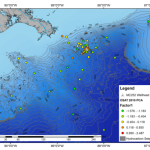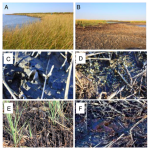“A blowout in deepwater was not a statistical inevitability.”
An eloquent and succinct line from the National Oil Spill Commission’s Report on the Deepwater Horizon disaster. The full report will be released on January 11th, but we were granted a sneak preview with the release of an advance chapter this week. Basically, the report says the whole system behind the oil industry is flawed (surprised?)–the oil companies increasing risk in an attempt to to save time and money, combined with the puny oversight of government regulatory agencies. Some key excerpts from the report are as follows:
“. . .the Macondo blowout was the product of several individual missteps and oversights by BP, Halliburton, and Transocean, which government regulators lacked the authority, the necessary resources, and the technical expertise to prevent.”
“The blowout was not the product of a series of aberrational decisions made by rogue industry or government officials that could not have been anticipated or expected to occur again. Rather, the root causes are systemic and, absent significant reform in both industry practices and government policies, might well recur.”
“Whether purposeful or not, many of the decisions that BP, Halliburton, and Transocean made that increased the risk of the Macondo blowout clearly saved those companies significant time (and money).”
And then there’s Figure 4.10. ‘Nuff said:
So what does this all mean? Well for one, it probably means less fines for BP. System-wide failures point the blame at multiple companies, not just BP, and thus it seems unlikely that BP would get slapped with gross negligence charges. However the company will still probably spend years embattled in court settling compensation claims for Gulf Coast residents, along with the civil case brought up by the US Justice department that could result in criminal convictions.
With this news, BP’s shares immediately rose by 1.8% (then up 5.3% at the end of the week), and reports that investors could see their dividend payments reinstated as early as March.
The former Minerals Management Service (MMS) also got slammed in this report–the full document is probably going to recommend a huge overhaul of the regulatory frameworks for offshore drilling. Good. We need it.
In another headline this week, a new paper in Science shows evidence that “vigorous deepwater bacterial bloom respired nearly all the released methane” released from the blown-out Macondo Well within about 120 days. Which is good news, and pretty cool science.
Share the post "1.9.2011 Sunday Spill Roundup: Advance Preview of Oil Spill Commision Report"






